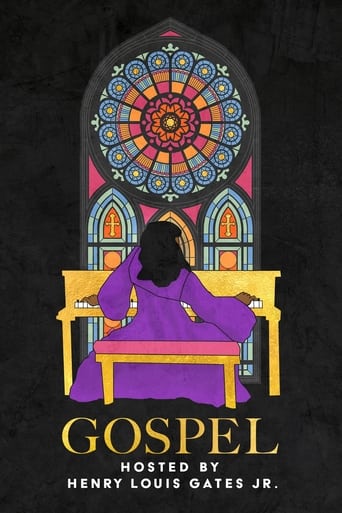
Rating:
0/10 by 0 users
Take The Message Everywhere
Starting in the 1940s, GOSPEL’s hour 2 explores the Golden Age of Gospel — the dramatic explosion of Black sacred music and the segregated highways of the American South — through the successful careers of Mahalia Jackson, Sam Cooke and Aretha Franklin. As the lines between the sacred and secular blur, gospel music becomes the powerful soundtrack of the freedom struggle.
Writing:
Release Date:
Mon, Feb 12, 2024
Country: US
Language: En
Runtime: 60
Country: US
Language: En
Runtime: 60
Season 1:

GOSPEL’s hour 1 takes the gospel train north to Chicago, where southern migrants Thomas A. Dorsey, Mahalia Jackson and Sister Rosetta Tharpe blended the melodic sounds and instrumentation of blues and jazz with lyrics about God’s goodness. Like the blues, gospel would become a commodity, but one built by Black-owned publishing companies like Martin and Morris and sustained by Black audiences.

Starting in the 1940s, GOSPEL’s hour 2 explores the Golden Age of Gospel — the dramatic explosion of Black sacred music and the segregated highways of the American South — through the successful careers of Mahalia Jackson, Sam Cooke and Aretha Franklin. As the lines between the sacred and secular blur, gospel music becomes the powerful soundtrack of the freedom struggle.

GOSPEL’s hour 3 reveals how gospel was going mainstream and family dynasties, many raised in the Church of God in Christ, would dominate the charts. Meanwhile, other children of the church used their heavenly voice to influence soul music. As gospel artists took the message everywhere, Black pastors continued to distinguish their message through a prophetic voice and sound with sermonettes.

GOSPEL’s hour 4 opens in the 1990s, when a new generation of music producers, record executives and artists embraced the secular rhythms of R&B and hip-hop to modernize the gospel sound. The launch of the Platinum Age of Gospel brought commercially successful songs about faith to millions in clubs, on cable TV and on urban radio, but drew criticism that gospel music had gone too far.


